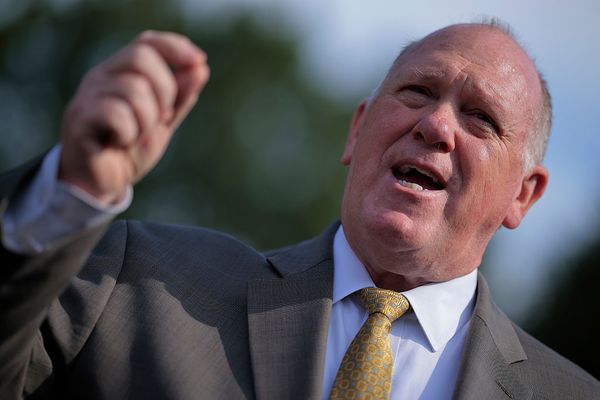
The pre-election uncertainty hanging over local councils has stalled much of their work, such that some mayors are muttering about a snap election to be done with it
Analysis: The establishment of a new Ministry of Local Government has been essentially rejected by the two big political parties – as for the first time, they begin to signal which council reform recommendations they might consider.
Champions of a new department to facilitate a more effective working relationship between local and central government call it, cheekily, the 'Ministry for Getting On Better'. It is just one of 17 recommendations from the independent Future for Local Government Review, encompassing how councils are elected, funded and operate.
The Local Government NZ advisory group is to meet on Monday evening and begin hammering out consensus on which recommendations they will back, and which they'll throw in the 'too hard' basket. Both Labour and National have challenged them to return after the election with an agreed plan. "The timeframe is to be ready by election day," says LGNZ president Sam Broughton.
READ MORE: * Battered trust the biggest hurdle to bold new local funding model * NZ's tiniest council shows attack is the best defence against amalgamation * Independent review proposes new tools to finance roads, parks and homes
Until now, Local Government Minister Kieran McAnulty has refused to rule any of them in or out, saying he wants councils to reach a consensus first and then tell the Government what they want – after October's election.
But starting with a political debate sponsored by Newsroom, and followed by a series of interviews with McAnulty and others in Parliament and local government, we've begun to piece together a picture of how local government will be reformed – and how the election impacts on that.
"I think consensus, to me, means outcomes that we can all live with," says Broughton. "So they might not be everyone's favourite outcome, but they're within the parameters of things that we can accept as a way forward."
The first recommendation to be rejected is the new ministry. "Do we need another level of bureaucracy to form a relationship?" queried National's local government spokesperson Simon Watt, rhetorically. "What you need is a minister who's actually going to interact face-to-face and put a handshake to a deal."
"It was always a risk that the opposition parties would use the recommendations as a stick to beat the Government and say, Government's going to expand bureaucracy." – Kieran McAnulty, Local Government Minister
Labour's Tracey McLellan agreed, on a new Crown department at least: "We don't need that, to have a relationship."
And that's a question Newsroom asked McAnulty – and whether McLellan was out of line in taking a position.
He gave the backbench MP cautious backing. "I can see what Tracey was trying to do because it was always a risk that the opposition parties would use the recommendations as a stick to beat the Government and say, 'Government's going to expand bureaucracy'," he says. "I'm sure it was simply that she was trying to outline that it is not our intention."
And with that, he and other politicians, at both central and local level, began to open up.
"We know things like rates, as the sole source of revenue for councils, is unsustainable," McAnulty says. "We know there are many things that your communities expect you to do, but you simply can't because you are constrained either by a debt cap, or by your community's ability to pay more. Let's address that."
So which of the review's recommendations will float, and which will sink?

There are easy wins that local councils, big and small, urban and rural, can form a consensus around – and sell them back to the Government.
That's because, essentially, they require nothing of Government. They're no skin off the minister's nose, whoever that minister may be after the election.
► Provide for a four-year local electoral term
Yes, most councillors support the recommended four-year council terms and yes, Kieran McAnulty supports it as well. "If I can just speak as Kieran from Masterton, for a moment, I'm a massive fan."
He says that should be extended to Parliament as well: "With the three-year term, there's really only a 12-month window to do things, because when we're not campaigning, you're campaigning. And when either of us are campaigning, things slow down dramatically."
► Entrench intergenerational wellbeing and local democracy in the law
Councils want greater responsibility for community wellbeing – and it requires little from the Government.
► In making decisions, Cabinet should consider the funding impact on local government
It's been a longstanding gripe for councils: the Government passing laws adding to their responsibilities, but failing to provide any resourcing to enable them to deliver. Last week, McAnulty told mayors. "What we can't do is repeat the mistakes of the past where central Government has told you to do more, but not funded you to do it."
"Kia ora," the listening mayors and councillors agreed.
► Change law to recognise local government as a partner to Te Tiriti o Waitangi
A sensible acknowledgement of local reality, that won't scare the horses.

There are two challenges here. The first is to achieve consensus between councils. Not only do councils not trust the Government, according to the review, but they don't much trust each other. This year, three councils (Auckland, Kaipara and West Coast Regional Council) have quit Local Government NZ; others are considering leaving.
It's important to understand that when Local Government NZ was created in 1988, it was a reaction to unhappiness with the big local government reforms of the Fourth Labour Government. Councils believe decisions are best made at the grassroots, as close as possible to the communities they affect; Labour governments tend to support greater aggregation and centralisation of power.
The lightning rod for dissent has been Three Waters; many mayors agree Local Government NZ got too cosy with the Government on the reforms, when communities were worried about losing control of the drinking water, wastewater and stormwater infrastructure that ratepayers had built up over generations.
So the first challenge is to form a consensus among councils. The second challenge is to persuade the Government – and that may be a very different sell depending on whether Labour or National holds power after October 14.
► Fund place-based agreements, and devolution of roles
If National wins, the recommendation that the Government do long-term funding deals with groups of councils to deliver agreed visions has a good chance.
Opposition leader Christopher Luxon promised as much, last week. Talk to your neighbours, get ready with your strategic projects, because National would "hit the ground running" with agreements on the priority investments that would deliver the most impact in a region.
The Future for Local Government Review calls them place-based agreements; around the world they're called 'city deals' like the benchmark example, the Greater Manchester Deal in the UK.
"Our goal is that city and regional deals are a vehicle to reshape the relationship between central government and local government," Luxon said. "The model has proven successful overseas, including in the United Kingdom and Australia."
Each deal will be bespoke, but all will share common features including long-term funding commitments by central and local government; shared strategic objectives that reflect the characteristics of each sub-region; a portfolio approach encompassing road, rail, public transport, housing and environmental resilience investments; and ongoing monitoring and auditing with milestone agreements.
"First in, best dressed," Luxon quipped.
Penny Hulse, a member of the Future for Local Government review panel, says most people seem to agree city deals are an excellent idea.
"The critical issue is, they must come with new funding and so you need a place where negotiations can happen in a meaningful way – and that's why a Ministry of Collaboration can help."
► Reorganise local government to resource councils to deal with increasing challenges and opportunities
"There is a master plan," claims NZ First candidate Jamie Arbuckle. "It's about amalgamation. It's about centralisation. And it's about probably not many of us being in this room in three years time."
Arbuckle, who is serving a fifth term as a Marlborough District Councillor, expresses a concern that is probably not shared by many councillors around the country. Most accept, at face value, Labour and National's assurances that there will be no wholesale reorganisation of councils and their boundaries – the only mergers or amalgamations will be at councils' request.
And it's fair to say, there's not much local appetite to reorganise into bigger regional entities, in pursuit of economies of scale. As we said, local councils value decision-making as close as possible to the grassroots.
Assuming Arbuckle is wrong, and there's no grand conspiracy to shut down small councils, it's unlikely the Future for Local Government Review recommendation to align council groupings with the 16 RMA boundaries will go anywhere fast.
► Jointly invest in adaptive leadership; intergenerational fund for climate change; transition funding to deliver on wellbeing and Te Tiriti objectives
What do these three recommendations have in common? That's right, a call on taxpayer funding. Councils may agree on these, but finance ministers of either stripe are less likely to give their blessing.
Also up in the air: ► Change law to require councils to develop partnership frameworks with hapū/iwi and Māori ► Councils invest in democratic innovations like participatory democracy ► Lower the threshold for the establishment of Māori wards

► Lower the voting age for local elections to 16
Given the lip service paid by local politicians and many senior MPs, this might seem a gimme – but it's more vexed than that. McAnulty says he supports the recommendation to lower the local government voting age to 16. "100%, I really am in favour of 16-year-olds voting," he told the Local Government NZ conference. "We're looking at issues that are going to affect them moving forward. We want to see more diversity in our local government sector. We want to see participation from our young and the best way to do that is to let them vote."
But although many politicians support the change, they know it's a tough sell on the hustings. After all, just as turkeys don't vote for Christmas, neither do franchised voters agree easily to extend that franchise to others. We saw that with the opposition from men to women getting the vote; it's much the same with extending the vote to 16- and 17-year-olds.
This recommendation is likely to fall by the wayside, whichever party is elected – but certainly if National wins Government.
"It's highly simplistic to think that the reduction of the voting age is going to drive a significant increase in the engagement level of local government. It's simply not going to happen," says National's local government spokesperson Simon Watts says.
"People want to be able to look at local government and feel like the interaction or relationship is going to lead to change, and change in my life. It is a conversation around the relationship, but also around delivery of the large scale infrastructure projects and services that people demand.... If we can do that, and deal with some of the funding aspects, that will get engagement – not a change in voting age."
► Establish a dedicated government department, to equip councils to increase community wellbeing
Even Penny Hulse acknowledges the difficulty getting this one over the line. But she remains hopeful.
The floods rebuild in Auckland, Hawkes Bay, Tairawhiti and Thames-Coromandel is an example of where a Ministry for Local Government is needed, she tells Newsroom, as a place for "those big complex joined-up discussions" that aren't currently happening.
"Look at Auckland, we can't get our act together to work out how we jointly fund homeowners who have red-stickered properties, and it's been six months now," she explains.
"This is my level of frustration. If we already had these processes and a mature relationship stewarded by a ministry, and local government staff working collaboratively, and ministers understanding there was a high trust place to have complex discussions, I think these discussions would have been far more fruitful. Instead they're stuck.
"Unless we are in each other's lives daily, we forget the critical importance of our partnership. And that's what the ministry could provide: that daily collaboration, daily discussion and daily joined-up thinking that could alleviate the current problems we've got trying to negotiate the structure and trying to negotiate a joined-up process around recovery.
"I'm always optimistic, always hopeful."
► Require central government to pay rates on Crown property
The Government is exempted from paying rates on conservation estate, schools, hospitals and health clinics, and other Crown land.
That's long been a sore point, and McAnulty has explicitly left the door open to changing this.
"You've already done a story on this, and I was quoted as saying that I'm open for that," he tells Newsroom. "And so that hasn't changed. But I'm not going to ask them to start a process and then start picking out yes and nos now. So let's wait and see what they come back with."
Mayors support the change, but aren't optimistic he (or any other local government minister) can get it past his Cabinet colleagues – it would be a big transfer from taxpayer to ratepayer coffers.
Also not a goer: ► Comprehensive review of legal requirements for councils to engage with Māori ► Establish a new local government stewardship institution, taking over from the Local Government Commission ► Adopting STV voting as a nationwide method for local elections ► Each year, transfer to councils $1 billion to support local democracy, plus the GST earned on rates







